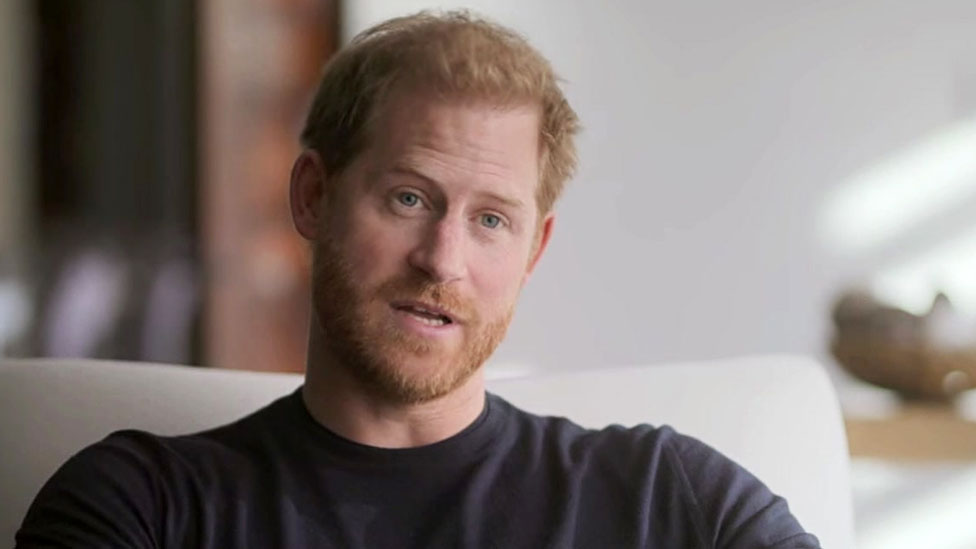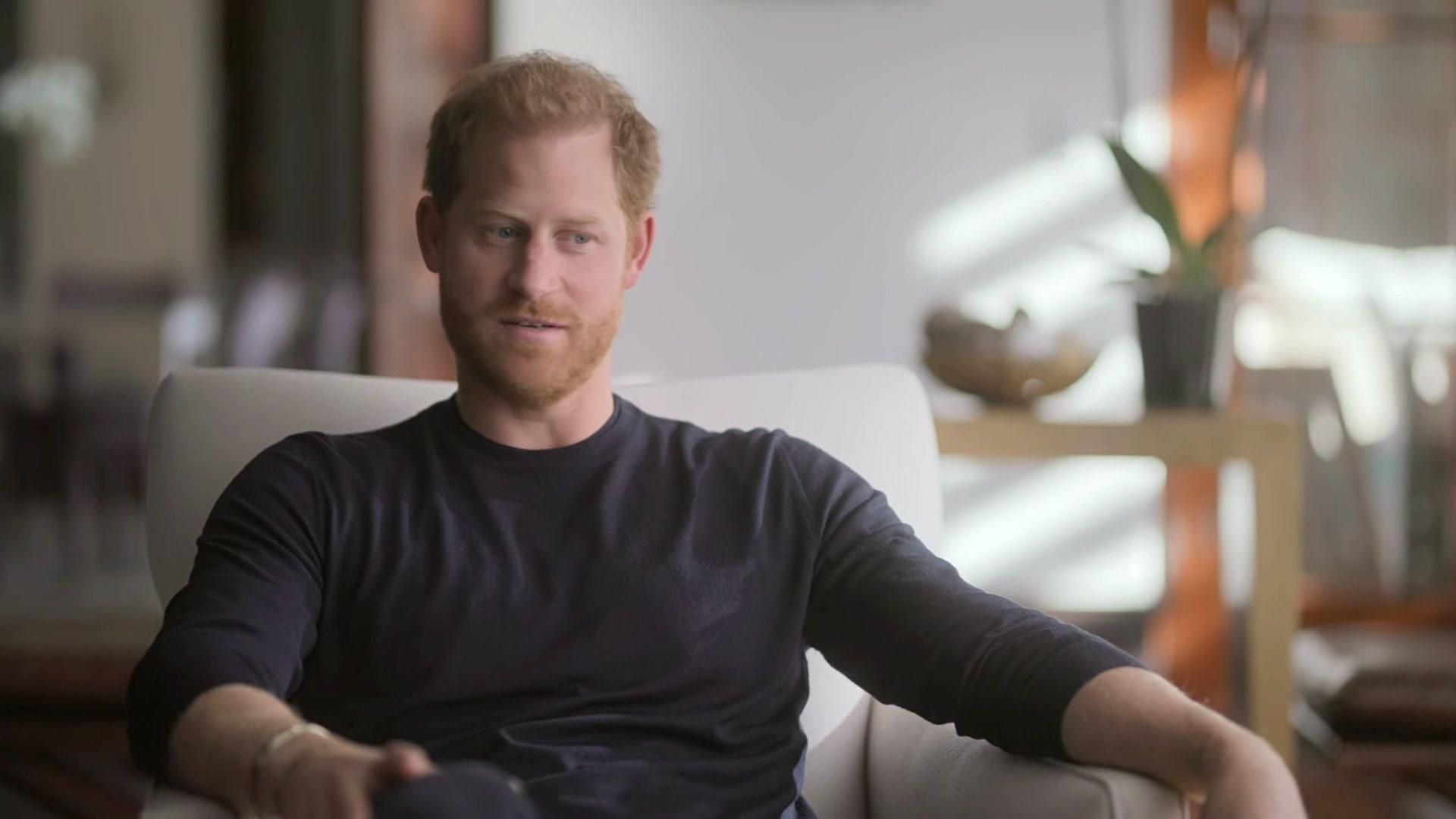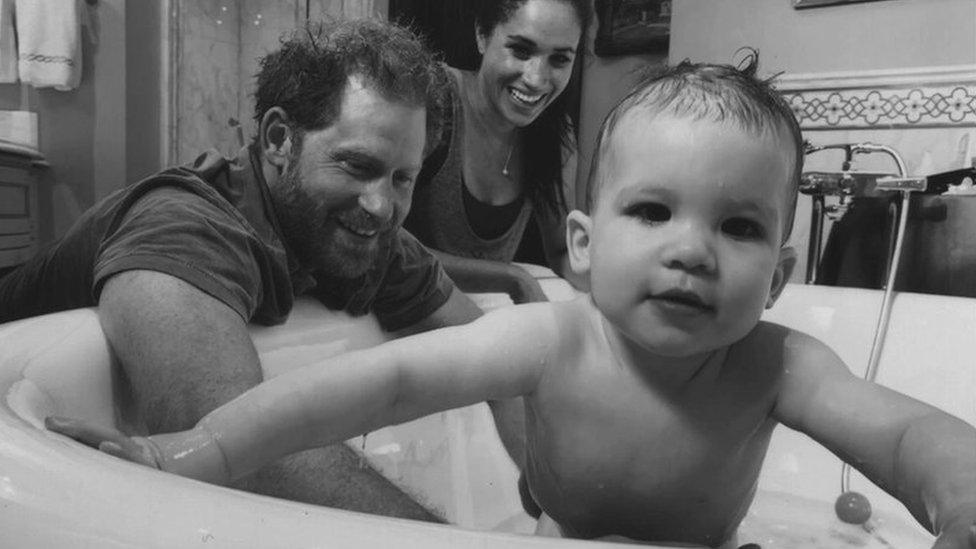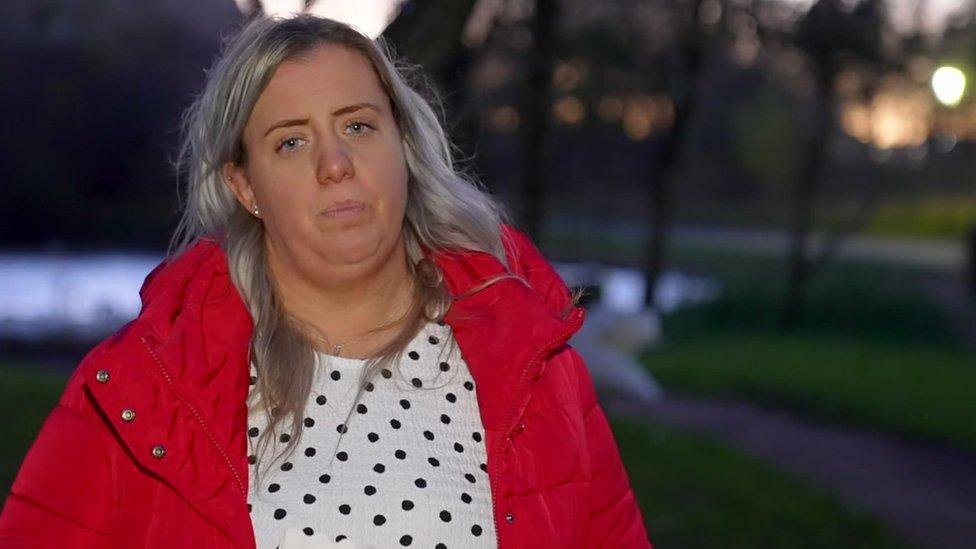Harry and Meghan: What's the link between stress and miscarriage?
- Published

Harry and Meghan have spoken openly about their experience with miscarriage
"I knew, as I clutched my firstborn child, that I was losing my second," wrote Meghan in 2020, after experiencing a miscarriage.
Fast forward two years, and in their new documentary the Duke and Duchess of Sussex both blame the stress caused by their legal fight with a newspaper.
Experts say more research is needed to understand why miscarriages happen but stress alone wouldn't be a cause.
With a number of factors at play, they say parents shouldn't blame themselves.
It's estimated that about one in five pregnancies ends in miscarriage, external - that's about 500 every single day in the UK.
Meghan has been vocal in the past about the importance of talking about the "staggering commonality of pain" caused by losing a baby.
She covered the topic in a piece she wrote for the New York Times, external in 2020.
At the time, the couple were in a bitter court battle with the publisher of the Mail on Sunday after it printed a letter Meghan had sent to her dad.
"Do we absolutely know that the miscarriage was caused by that? Of course we don't," says Prince Harry in their Netflix series.
"But bearing in mind the stress, the lack of sleep... I can say from what I saw that that miscarriage was created by what they were trying to do to her."
The duchess won her privacy and copyright case against Associated Newspapers Limited last year.

The couple believe their miscarriage was caused by the stress of a court case
It's often not possible to know what causes a miscarriage and a lot more research needs to be done.
While there is some evidence to suggest there may be a link between stress and miscarriage, the NHS and charities agree it is not a cause on its own.
"After a miscarriage, most people will ask themselves what caused it, why it happened," says Ruth Bender Atik, from the Miscarriage Association.
"Unfortunately, very few people will have an obvious cause diagnosed.
"In that situation, we tend to seek our own explanation, what we did or didn't do - and stress is one of those."

Harry and Meghan are parents to their son, Archie, and daughter, Lilibet
Most miscarriages happen early in pregnancy. These tend to be caused by random chromosomal abnormalities - problems with a foetus's DNA which mean it can't develop properly.
After three months, a wide number of factors, including infections, the mother's age or a weakened cervix could be a reason.
Miscarriage research charity Tommy's says there's some evidence of a link between persistent stress and miscarriage.
But this is often connected to other lifestyle risk factors, such as poor sleep and diet or substance abuse.
It says it's important women don't worry unnecessarily about stress, which is normal during pregnancy.
"What we don't want to do is scare women unnecessarily from being at work or engaging in stressful activities," says Dr Ellie Cannon, a GP.
She says there has always been an "unhelpful" misconception linking stress and miscarriage.
"I have a huge amount of sympathy for any couple that's gone through miscarriage," she says.
"It's a very difficult time, it's incredibly personal and any woman going through this will experience that differently."
But she adds that it's important to recognise stress as not being a sole cause, to limit feelings of guilt and anxiety for pregnant women.
Amina Hatia, from Tommy's, says those who experience miscarriage will question why it happened and "often blame themselves, feeling guilty about what they feel they did or didn't do".
"We have very little control over stress in our lives, and in any pregnancy it is natural at times to feel a bit anxious or stressed," she says.
"Therefore, telling people 'not to stress' for their own emotional and physical health doesn't usually work."
Amina says it can even be counterproductive, leading to more guilt and worry.
There is, however, a strong emphasis on mental wellbeing.
Experts agree it's just as important as physical health during pregnancy and pregnant women should get the help they need.
And most women who miscarry go on to have healthy pregnancies - Harry and Meghan welcomed their daughter, Lilibet, in June 2021.


Follow Newsbeat on Twitter, external and YouTube, external.
Listen to Newsbeat live at 12:45 and 17:45 weekdays - or listen back here.
- Published16 December 2022

- Published15 December 2022

- Published15 December 2022

- Published15 December 2022

- Published15 December 2022

- Published15 May 2022

- Published8 April 2022

- Published2 December 2021

- Published25 November 2020

- Published15 October 2020
